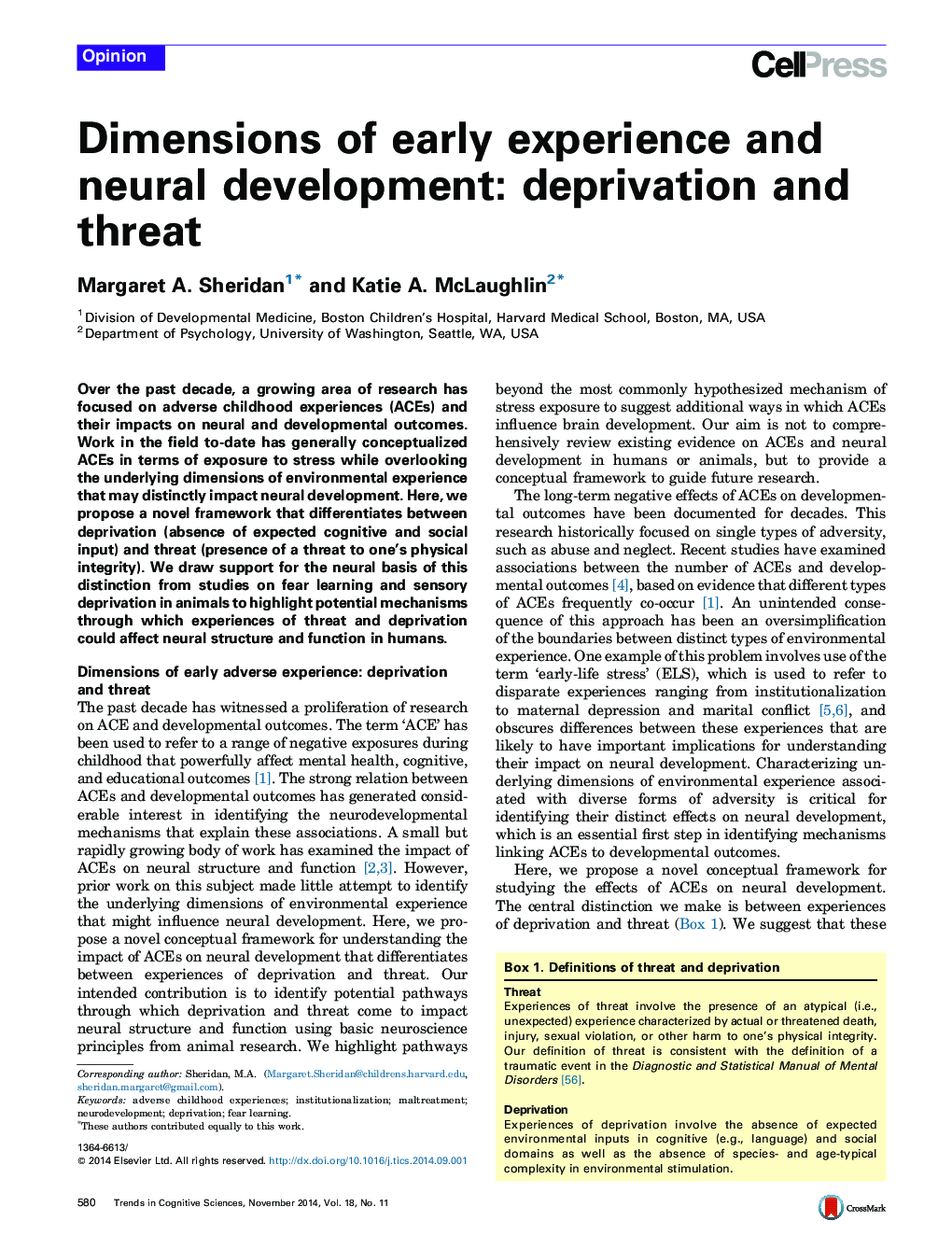| Article ID | Journal | Published Year | Pages | File Type |
|---|---|---|---|---|
| 141424 | Trends in Cognitive Sciences | 2014 | 6 Pages |
•New framework differentiates between depriving and threatening adverse childhood experiences.•Deprivation, or the absence of expected inputs, impacts proliferation and pruning.•Threat, or the presence of atypical trauma experiences, impacts fear learning.•These patterns can be observed in humans and animals.
Over the past decade, a growing area of research has focused on adverse childhood experiences (ACEs) and their impacts on neural and developmental outcomes. Work in the field to-date has generally conceptualized ACEs in terms of exposure to stress while overlooking the underlying dimensions of environmental experience that may distinctly impact neural development. Here, we propose a novel framework that differentiates between deprivation (absence of expected cognitive and social input) and threat (presence of a threat to one's physical integrity). We draw support for the neural basis of this distinction from studies on fear learning and sensory deprivation in animals to highlight potential mechanisms through which experiences of threat and deprivation could affect neural structure and function in humans.
